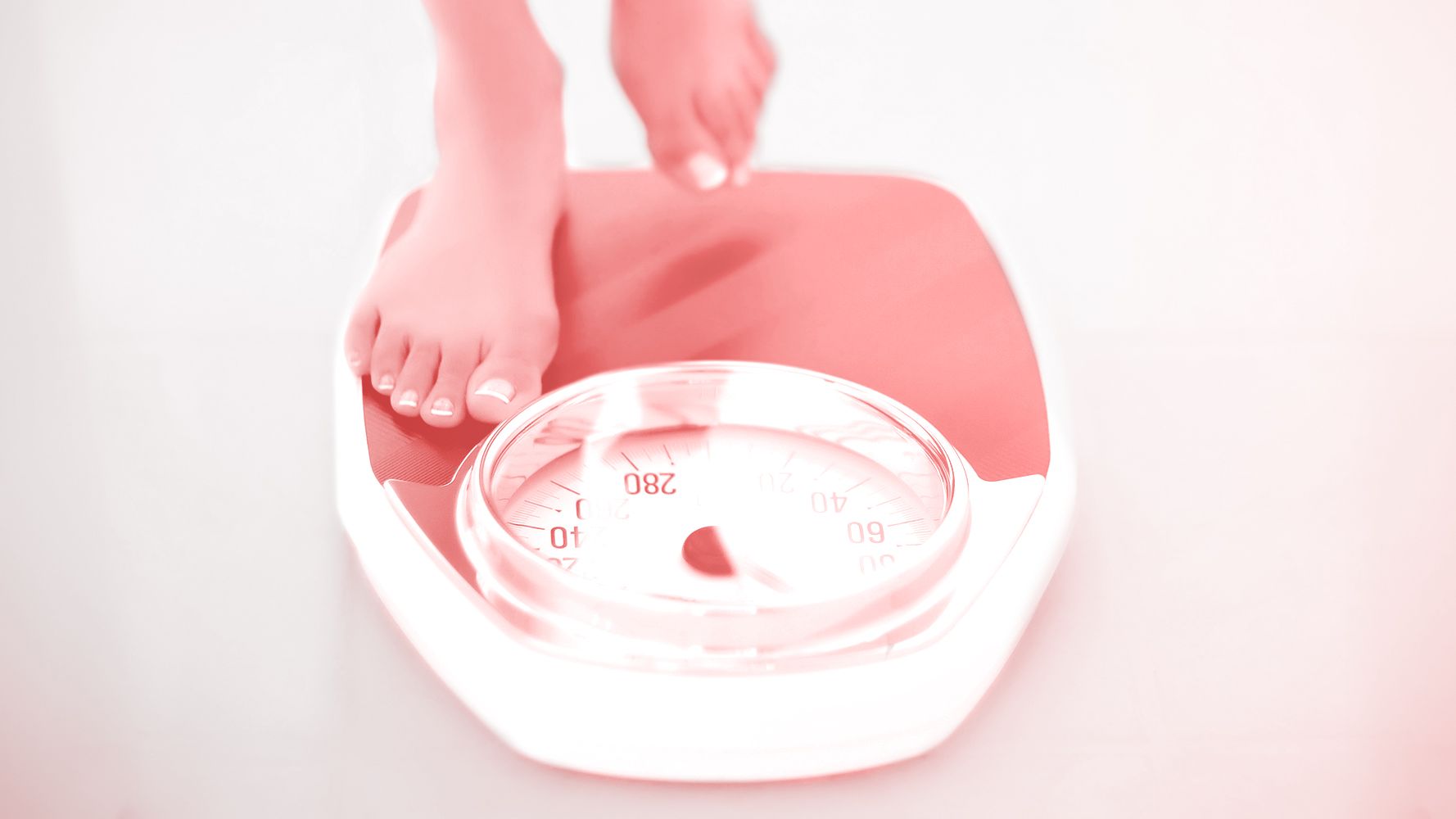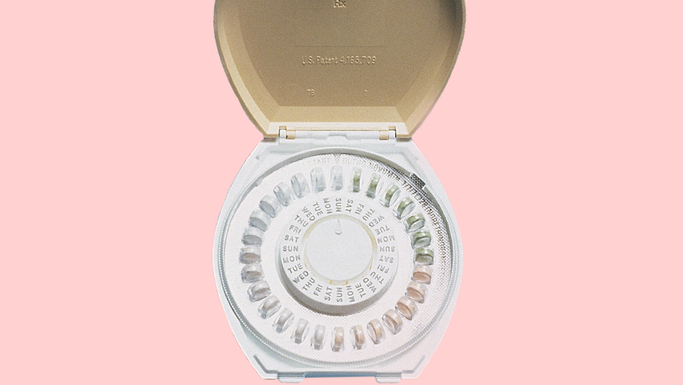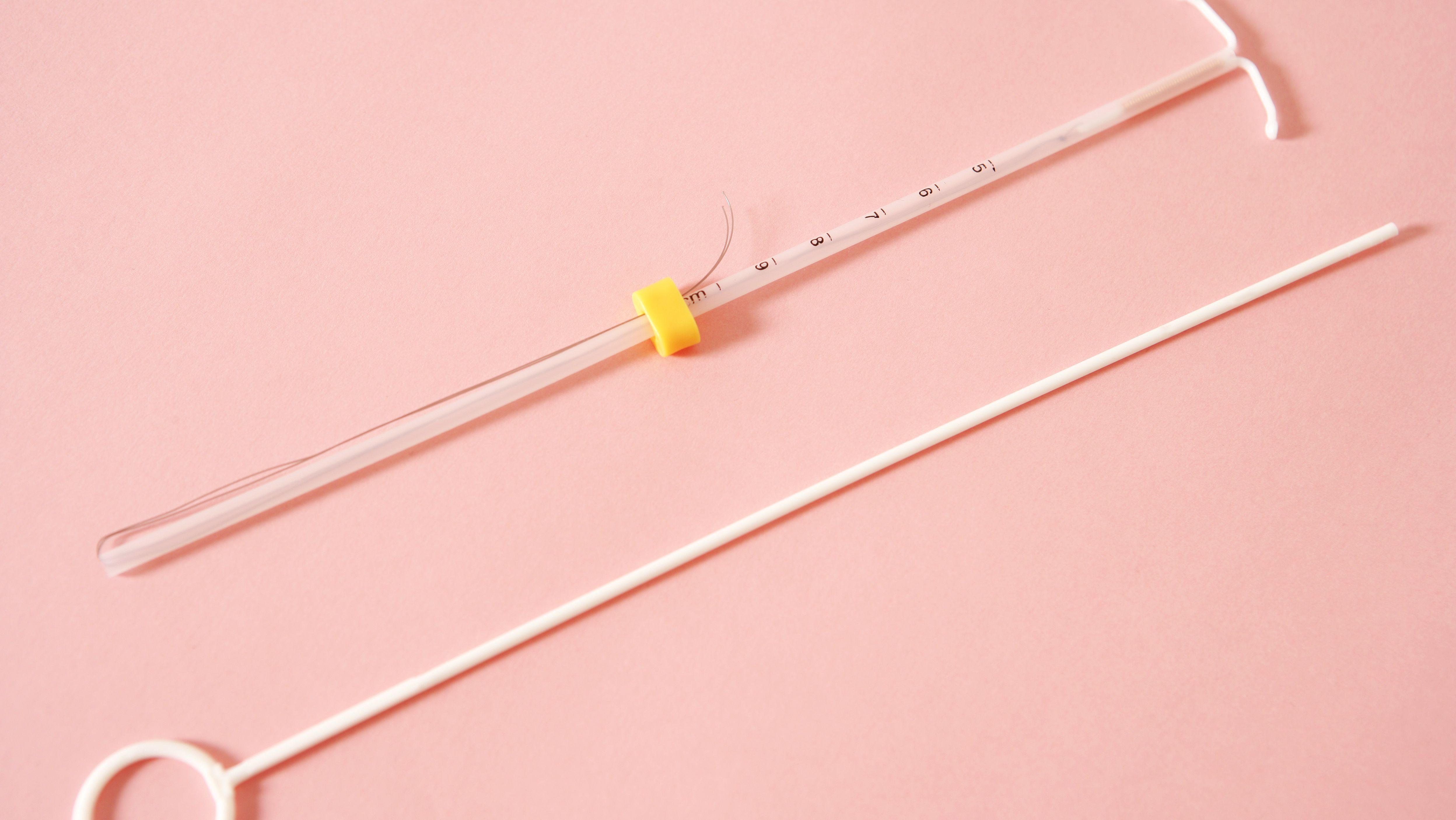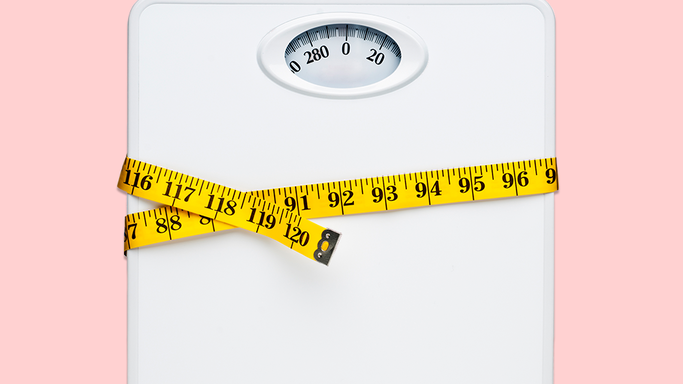A Final Consensus: Does Birth Control Really Make You Gain Weight?
Just because it happened to your sister's best friend's cousin, doesn't mean it'll happen to you.


We all know that one girl in high school who went away for the summer, came back 20 pounds heavier, and loudly lamented, “I went on birth control!” We also all have stories of our sister’s best friend’s cousin’s boobs and butt “tripling” in size after she went on the pill. It’s thanks to rumors and half-truths like these that more and more women are choosing to forgo hormonal contraception altogether out of worry of gaining a little weight. And that, quite frankly, is not okay with us.
Listen, nobody should feel like they need to sacrifice the benefits of birth control (i.e. preventing pregnancy, alleviating period cramps, regulating hormonal imbalances, and a million more positives) because of an age-old myth—especially if it really is, in fact, a myth. And nobody should live in fear of perfectly normal and healthy weight fluctuations. So to help settle the debate, we chatted with the top medical experts and scoured virtually every study published to find out, once and for all, whether or not birth control actually makes you gain weight.
First up, the pill
Despite everything your mother and her friends have told you, there’s currently no evidence that oral birth control—i.e. the combination pill (which contains both estrogen and progestin hormones) and the mini pill (which contains only progestin)—is directly linked to weight gain. Even when tested on overweight and obese women, oral contraceptives were shown to have no effect on weight gain or body composition changes, according to a 2014 study from The Journal of Women’s Health.

Instead, what many women mistake as weight gain is often just their body going through an adjustment period. “When you first go on the pill or switch brands, your body may experience breast tenderness and swelling due to hormonal stimulation of the breast tissue,” says Susan Loeb-Zeitlin, M.D., an OB/GYN at NewYork-Presbyterian and Weill Cornell Medicine in New York City. “This often causes water retention and an increase in breast size, which patients mistake as weight gain, but it’s not permanent.” In fact, most side effects will subside after three months as your body gets used to the hormonal changes.
Still, if you’re one of the women who absolutely swears your birth control pill is to blame for a recent weight gain, your body might be reacting negatively—and uncommonly—with the specific type of hormones found in your pill. “This probably isn’t supported in the literature, but I think some patients really do tolerate certain hormone combinations in one given pill than another,” says Dr. Loeb-Zeitlin, “and that’s why choosing a birth control pill can require a bit of trial and error, and a bit of your doctor’s clinical experience." Translation: Always talk with your doctor if you're having doubts about your pill.
Next, we have the patch and the ring
Now that we can all collectively text our friends to say no, there’s no scientific proof the pill causes weight gain, where does that leave the patch and the ring? According to a 2017 analysis that reviewed the findings of 45 previously published studies on birth control, neither the pill nor the patch were found to cause weight gain in women, while the ring has been found again and again to have no measurable impact on weight when compared to birth control pills and placebos.
In fact, a 2014 study from Ohio State University found no link at all between combination contraceptives (i.e. methods containing both estrogen and progestin, like the patch, ring, and combo pill) and weight gain. Yes, this is all good news. Of course, we feel the need to reiterate again and again that every body is different, so you and your best friend may have differing experiences, but if you're truly freaked about weight gain, know that at least a bunch of scientific studies are giving you the green light on the patch and ring.
Get exclusive access to fashion and beauty trends, hot-off-the-press celebrity news, and more.
The shot, annoyingly, does cause weight gain
The only birth control that has been scientifically linked to weight gain is the progestin-only Depo shot (i.e. the DMPA shot), an injection you receive once every three months that prevents ovulation to keep you from getting pregnant.

Though nobody knows exactly why the progestin in the Depo shot causes weight gain, while the progestin in, say, the implant (more on that method later), doesn’t, doctors think it has to do with two things: the high (yet totally safe) amount of progestin in the shot, and the way that progestin is released into your body, all of which can affect your hypothalamus and metabolic processes, possibly leading to increased thirst and hunger.
Before you’re all, Wait, I’m on the shot, and I haven’t gained weight, or the contrary—you’re on the shot and this is your AHA! moment—know that the Depo shot has only been found to cause weight gain in one out of every four women who uses the shot, as confirmed in a 2009 study from the University of Texas. Basically, 75 percent of women likely won’t gain weight from the shot. And even if you’re in the 25 percent of women who experience weight gain, the exact amount of weight you might gain totally varies, ranging from an average of 17 pounds in the first 12 months, 24 pounds within the first 24 months, and 24.4 pounds after 36 months of continuous Depo shot use, according to that same study of 240 women.
We should also note that 240 women isn’t a huge sample size, so there are still no guarantees you’ll gain weight at all, because in case you haven’t gotten our overarching message, everyone's bodies respond differently. Plus, the benefits of the shot may also outweigh those of, say, the pill, since you don’t need to worry about taking it on a daily basis.
But what about implants—AKA the rod and the IUD?
Wait, so if progestin-only pills don't cause weight gain, and progestin-only shots do cause weight gain, where does that leave progestin-only rod implants and progestin-only IUDs (i.e. the only type of hormonal IUD offered)? In a really good place, actually.
RELATED STORIES


“Hormonal IUDs contain a much lower dose of progestin than the Depo shot does," says Dr. Loeb-Zeitlin, "and they also use non-systemic hormones that won’t stop you from ovulating, so IUDs shouldn’t cause any weight gain." Even the implant rod, which is progestin-only, has shown limited evidence of affecting one’s weight or body composition, proving not all progestin-only birth control is created equal.
“I wouldn’t necessarily ring the alarm bells for progestin-only methods of contraception,” says Fatima Stanford, M.D., obesity medicine physician at Massachusetts General Hospital in Boston. In fact, out of Dr. Stanford’s 1,500 patients she’s seen for weight gain, fewer than 2 percent of them have linked their increased weight with birth control, and those who have experienced weight gain usually attribute it to the Depo shot.

The bottom line
“There’s science, and then there’s day-to-day evidence,” says Ana Cepin, M.D., OB/GYN at New York-Presbyterian/Columbia University Irving Medical Center in New York City. “Most people gain weight as time goes by regardless of what they’re doing, so you may just be correlating fluctuations to your birth control method.”

Even if you have noticed a shift in your weight, try not to get discouraged. According to Dr. Loeb-Zeitlin, it’s ideal to give your new birth control a try for at least three months before writing it off, as initial side effects will likely plateau as your body adapts to the hormones. “With that said, I always tell my patients, look, if you’re gaining weight with this method, let’s figure out what the pros and cons are, see what other options are, and then we can experiment to see if that makes a difference,” says Dr. Cepin.
And if you’re still worried about hormones, you can always opt for the non-hormonal IUD ParaGard, which uses copper to prevent sperm from fertilizing an egg. It lasts up to 10 years without you needing to do anything (yes, that’s basically magic), though it does come with some common side effects of increased cramping, heavier bleeding, and irregular periods, though these will likely decrease over time if you experience them at all.
Basically, you’re never without options when it comes to birth control. And you know who can tell you even more than we can? Your OB/GYN, who should be your first line of defense in finding the right method for you and your body—which we shouldn't need to remind you but will anyway—is perfect, regardless of the number on the scale.
RELATED STORY

Rachel Epstein is a writer, editor, and content strategist based in New York City. Most recently, she was the Managing Editor at Coveteur, where she oversaw the site’s day-to-day editorial operations. Previously, she was an editor at Marie Claire, where she wrote and edited culture, politics, and lifestyle stories ranging from op-eds to profiles to ambitious packages. She also launched and managed the site’s virtual book club, #ReadWithMC. Offline, she’s likely watching a Heat game or finding a new coffee shop.
